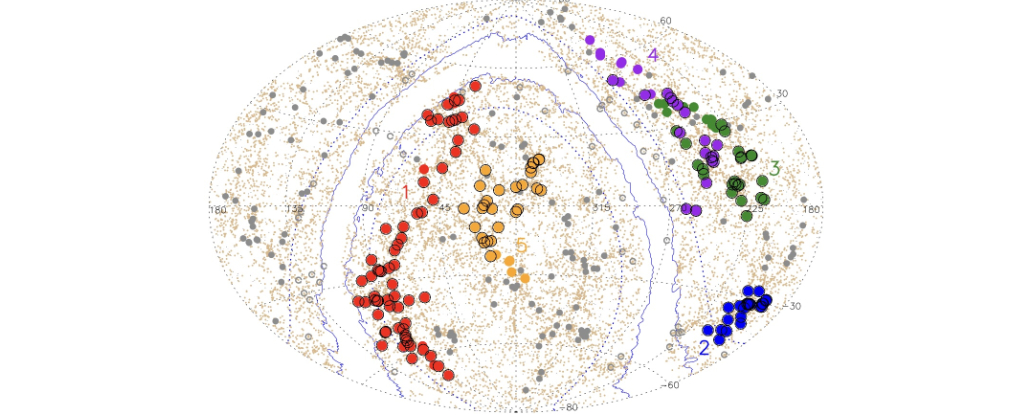JavaScript Array Methods Cheat Sheet: The Only Guide You Need
Mutator Methods (Modify the original array) push(element1, ..., elementN) Adds elements to the end. Returns: New length. arr.push(5); // [1,2,3] → [1,2,3,5] pop() Removes the last element. Returns: Removed element. arr.pop(); // [1,2,3] → [1,2] shift() Removes the first element. Returns: Removed element. arr.shift(); // [1,2,3] → [2,3] unshift(element1, ..., elementN) Adds elements to the start. Returns: New length. arr.unshift(0); // [1,2,3] → [0,1,2,3] splice(start, deleteCount, ...items) Adds/removes elements at start index. Returns: Array of removed elements. arr.splice(1, 1, 'a'); // [1,2,3] → [1,'a',3] sort([compareFunction]) Sorts elements (lexicographically by default). Returns: Sorted array (mutates original). arr.sort((a, b) => a - b); // [3,1,2] → [1,2,3] reverse() Reverses the array. Returns: Reversed array (mutates original). arr.reverse(); // [1,2,3] → [3,2,1] fill(value, start?, end?) Fills array with value between start and end. arr.fill(0); // [1,2,3] → [0,0,0] copyWithin(target, start, end?) Copies elements within the array. [1,2,3,4].copyWithin(0, 2); // → [3,4,3,4] Accessor Methods (Return new data without modifying the array) concat(...arrays) Merges arrays. Returns: New merged array. arr.concat([4,5]); // [1,2,3] → [1,2,3,4,5] slice(start?, end?) Returns subarray between start and end. arr.slice(1, 3); // [1,2,3,4] → [2,3] join(separator?) Joins elements into a string (default: ,). arr.join('-'); // [1,2,3] → "1-2-3" includes(element) Checks if array contains element. Returns: true/false. arr.includes(2); // [1,2,3] → true indexOf(element) Returns first index of element or -1. arr.indexOf(2); // [1,2,3] → 1 lastIndexOf(element) Returns last index of element or -1. [1,2,2,3].lastIndexOf(2); // → 2 toString() Same as join(). [1,2,3].toString(); // "1,2,3" toSorted() (ES2023) Non-mutating version of sort(). const sorted = arr.toSorted(); toReversed() (ES2023) Non-mutating version of reverse(). const reversed = arr.toReversed(); Iteration Methods forEach(callback) Executes callback for each element. Returns: undefined. arr.forEach(x => console.log(x)); map(callback) Returns new array with transformed elements. const doubled = arr.map(x => x * 2); filter(callback) Returns elements that pass callback test. const evens = arr.filter(x => x % 2 === 0); reduce(callback, initialValue?) Reduces array to a single value. const sum = arr.reduce((acc, x) => acc + x, 0); find(callback) Returns first element passing callback test. const firstEven = arr.find(x => x % 2 === 0); some(callback) Checks if at least one element passes test. Returns: true/false. const hasEven = arr.some(x => x % 2 === 0); every(callback) Checks if all elements pass test. const allEven = arr.every(x => x % 2 === 0); flat(depth = 1) Flattens nested arrays. [1, [2]].flat(); // → [1,2] flatMap(callback) Maps then flattens the result. arr.flatMap(x => [x, x*2]); // [1,2] → [1,2,2,4] Static Methods Array.isArray(value) Checks if value is an array. Array.isArray([1,2]); // → true Array.from(arrayLike) Creates an array from array-like/iterable. Array.from('123'); // → ['1','2','3'] Array.of(...elements) Creates an array from arguments. Array.of(1,2,3); // → [1,2,3] ES6+ Additions at(index) Returns element at index (supports negatives). [1,2,3].at(-1); // → 3 findLast(callback) (ES2023) Returns last element passing test. [1,2,2,3].findLast(x => x === 2); // → 2 Key Notes: Mutators: Modify the original array (e.g., push, sort). Accessors: Return new data without changing the original (e.g., slice, concat). Iterators: Process elements via callbacks (e.g., map, filter). Use toSorted(), toReversed(), etc., for non-mutating operations (ES2023+).

Mutator Methods (Modify the original array)
-
push(element1, ..., elementN)Adds elements to the end. Returns: New length.
arr.push(5); // [1,2,3] → [1,2,3,5]
-
pop()Removes the last element. Returns: Removed element.
arr.pop(); // [1,2,3] → [1,2]
-
shift()Removes the first element. Returns: Removed element.
arr.shift(); // [1,2,3] → [2,3]
-
unshift(element1, ..., elementN)Adds elements to the start. Returns: New length.
arr.unshift(0); // [1,2,3] → [0,1,2,3]
-
splice(start, deleteCount, ...items)Adds/removes elements at start index. Returns: Array of removed elements.
arr.splice(1, 1, 'a'); // [1,2,3] → [1,'a',3]
-
sort([compareFunction])Sorts elements (lexicographically by default). Returns: Sorted array (mutates original).
arr.sort((a, b) => a - b); // [3,1,2] → [1,2,3]
-
reverse()Reverses the array. Returns: Reversed array (mutates original).
arr.reverse(); // [1,2,3] → [3,2,1]
-
fill(value, start?, end?)Fills array withvaluebetweenstartandend.
arr.fill(0); // [1,2,3] → [0,0,0]
-
copyWithin(target, start, end?)Copies elements within the array.
[1,2,3,4].copyWithin(0, 2); // → [3,4,3,4]
Accessor Methods (Return new data without modifying the array)
- concat(...arrays) Merges arrays. Returns: New merged array.
arr.concat([4,5]); // [1,2,3] → [1,2,3,4,5]
-
slice(start?, end?)Returns subarray betweenstartandend.
arr.slice(1, 3); // [1,2,3,4] → [2,3]
-
join(separator?)Joins elements into a string (default:,).
arr.join('-'); // [1,2,3] → "1-2-3"
-
includes(element)Checks if array containselement. Returns:true/false.
arr.includes(2); // [1,2,3] → true
-
indexOf(element)Returns first index ofelementor-1.
arr.indexOf(2); // [1,2,3] → 1
-
lastIndexOf(element)Returns last index ofelementor-1.
[1,2,2,3].lastIndexOf(2); // → 2
-
toString()Same asjoin().
[1,2,3].toString(); // "1,2,3"
-
toSorted() (ES2023)Non-mutating version ofsort().
const sorted = arr.toSorted();
-
toReversed() (ES2023)Non-mutating version ofreverse().
const reversed = arr.toReversed();
Iteration Methods
-
forEach(callback)Executescallbackfor each element. Returns:undefined.
arr.forEach(x => console.log(x));
-
map(callback)Returns new array with transformed elements.
const doubled = arr.map(x => x * 2);
- filter(callback)
Returns elements that pass
callbacktest.
const evens = arr.filter(x => x % 2 === 0);
-
reduce(callback, initialValue?)Reduces array to a single value.
const sum = arr.reduce((acc, x) => acc + x, 0);
-
find(callback)Returns first element passingcallbacktest.
const firstEven = arr.find(x => x % 2 === 0);
-
some(callback)Checks if at least oneelementpasses test. Returns:true/false.
const hasEven = arr.some(x => x % 2 === 0);
-
every(callback)Checks if all elements pass test.
const allEven = arr.every(x => x % 2 === 0);
-
flat(depth = 1)Flattens nested arrays.
[1, [2]].flat(); // → [1,2]
- flatMap(callback) Maps then flattens the result.
arr.flatMap(x => [x, x*2]); // [1,2] → [1,2,2,4]
Static Methods
-
Array.isArray(value)Checks if value is an array.
Array.isArray([1,2]); // → true
-
Array.from(arrayLike)Creates an array from array-like/iterable.
Array.from('123'); // → ['1','2','3']
-
Array.of(...elements)Creates an array from arguments.
Array.of(1,2,3); // → [1,2,3]
ES6+ Additions
-
at(index)Returns element at index (supports negatives).
[1,2,3].at(-1); // → 3
-
findLast(callback) (ES2023)Returns last element passing test.
[1,2,2,3].findLast(x => x === 2); // → 2
Key Notes:
-
Mutators: Modify the original array (e.g.,
push,sort). -
Accessors: Return new data without changing the original (e.g.,
slice,concat). -
Iterators: Process elements via callbacks (e.g.,
map,filter). -
Use toSorted(),toReversed(), etc., for non-mutating operations (ES2023+).











































































